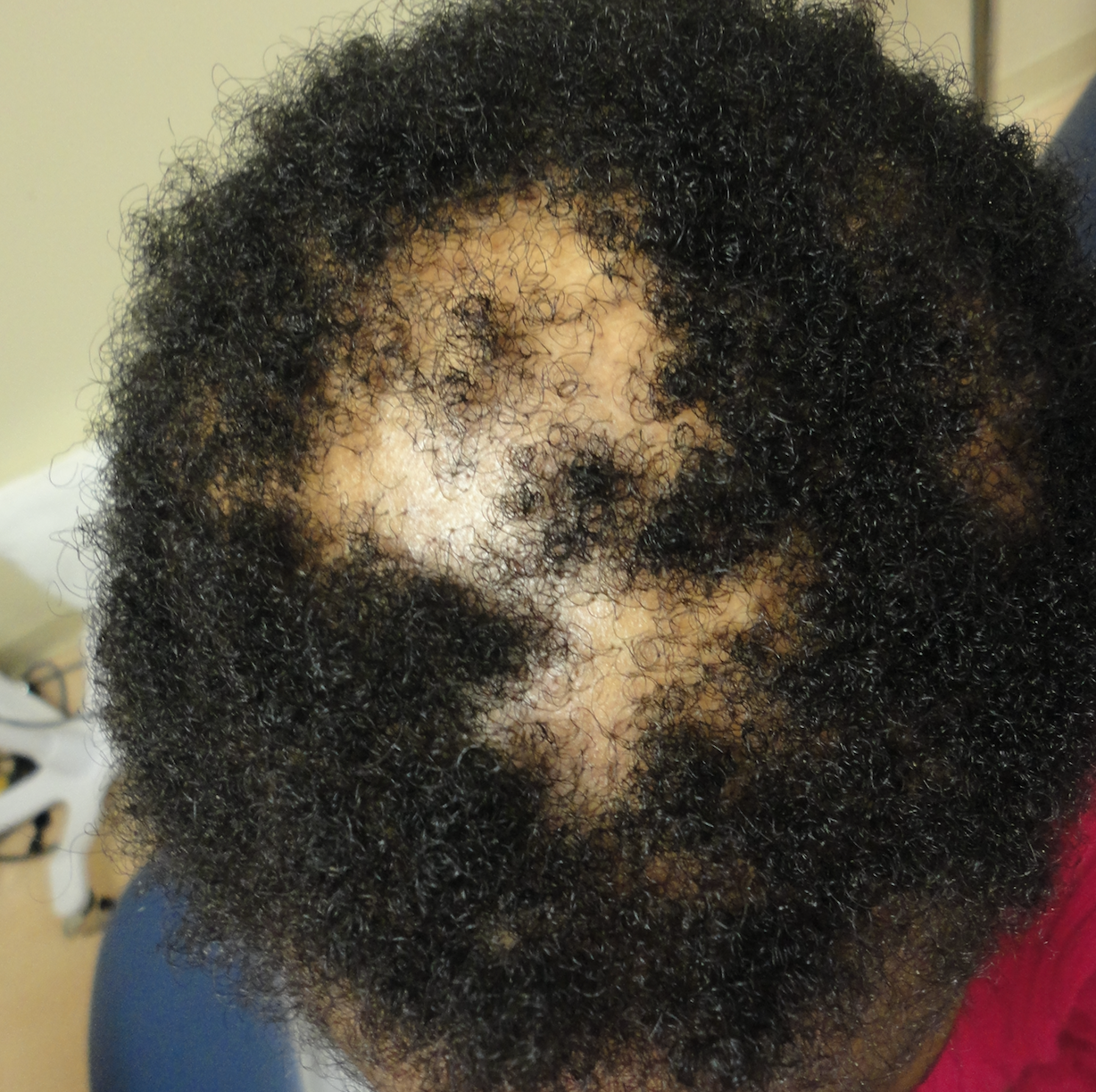Topical 10 % Metformin for Treating CCCA
More “Non-Steroid” Anti-Inflammatory Options for Scarring Alopecia
I was interested to read an article about the use of topical metformin in the treatment of a scarring alopecia known as central centrifugal cicatricial alopecia (CCCA). CCCA is a common scarring alopecia in women with afro-textured hair. Traditional treatments include topical steroids, topical tacrolimus, doxycycline, minoxidil and steroid injections.
Central centrifugal cicatricial alopecia (CCCA) is a scarring alopecia that affects women with afrotrextured hair. A new study supports that use of topical 10 % metformin as a helpful treatment.
Metformin for CCCA: New Off Label Uses for an Old Drug
Metformin is a well known diabetes drug. It remains among the top 10 most commonly prescribed drugs in the US with nearly 80 million prescriptions each year. Recent evidence has suggested that metformin may have more benefits than just diabetes. It may, for example, have a positive impact on the treatment of some autoimmune diseases (including effects on monocytes, macrophages and neutrophils). Furthermore, metformin may have an impact not only on autoimmune diseases but improve gut health (the microbiota) and have an anti-fibrotic effect as well. These effects together make them ideal to consider in the study of scarring alopecia. We already know that drugs as pioglitazone may be helpful in lichen planopilaris.
Metformin for CCCA
Metformin primarily exerts its effect through activation of an enzyme known as AMP-activated protein kinase (AMPK). Remarkably, about 1/3 of patients with CCCA have low levels of expression of AMPK. It’s for the this reason that researchers from John Hopkins in Baltiomore set out to evaluate whether metformin could benefit CCCA.
Dr. Crystal Aguh and her colleagues chose topical metformin to study given the enhanced safety of topical metformin over systemic metformin. They found that 10 % metformin compounded in lipderm cream would help reduce disease activity and improve hair in patients with CCCA. There were no systemic side effects observed. The paper is attached here.
Conclusion and Comments.
This is an interesting paper which not only opens new avenues of exploration in CCCA but also in scarring alopecia in general. We have been using metformin off label for many conditions including AGA associated with polycystic ovarian syndrome as well as occasionally in some scarring alopecias such as discoid lupus and lichen planopilaris.
SEE Metformin in Lupus: How will it help our Scarring Alopecia Patients?
With this information, I’ll look forward to expanding our study of metformin to CCCA.
The second important point of this paper is that it reminds us that we have an array of non steroid options to consider in managing scarring alopecia. Certainly, topical steroids must be at the top of the list for effective reliable treatments. Clearly they have a primary role in these diseases. However, we must remember that our tool box is filled with other agents that hep reduce inflammation including topical calcineurin inhibitors (pimecrolimus, tacrolimus), metronidazole, Tofacitinib, Ruxolitinib and now … metformin too. Most studies are needed to better understand when and how these can best be used.
Topical Steroids
Topical Pimecrolimus
Topical Tacrolimus
Topical Metronidazole
Topical Metformin
Topical Tofacitinib
Topical Ruxolitinib
REFERENCE
Araoye EF et al. Hair regrowth in 2 patients with recalcitrant central centrifugal cicatricial alopecia after use of topical metformin. JAAD CASE REPORTS FEB 2020.
This article was written by Dr. Jeff Donovan, a Canadian and US board certified dermatologist specializing exclusively in hair loss.

